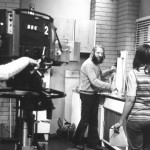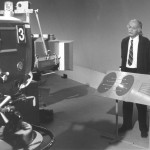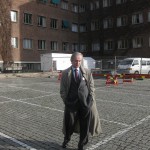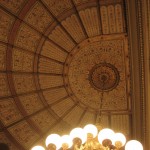Enlightened in darkness
Thursday, November 17th, 2011Shortly to be published is Devin Orgeron, Marsha Orgeron (pictured) and Dan Streible (eds.) Learning with the Lights Off. Educational Film in the United States, OUP, 2011. This is about film’s educational uses in twentieth-century America. Illustrated with over 90 illustrations of rarely seen educational films, the publisher suggests that this collection of essays examines ‘some crucial aspect of educational film history, ranging from case studies of films and filmmakers, to analyses of genres, to broader historical assessments’. It also suggests that there will be links to many of the films.
For historians of the OU this could be of interest as Harold Wilson was influenced by the owner of Encyclopaedia Britannica Films, William Benton. Walter Perry argued that Benton was one of the men whose vision of education for all, through correspondence teaching and the use of the mass media, contributed to the decision to found the Open University. An advocate of radio, in the 1950s Benton toured the world with his films arguing that ‘the cold war between the open and closed societies is likely to be won in the world’s classrooms, libraries, and college and university laboratories’. He also sponsored tours of the USA taken by Wilson. In return Wilson sought to help Benton to overcome his ‘problem’ concerning the British quota on the number of foreign films which could be shown. For Benton and Wilson widening access to knowledge, business and politics could all advance together.




